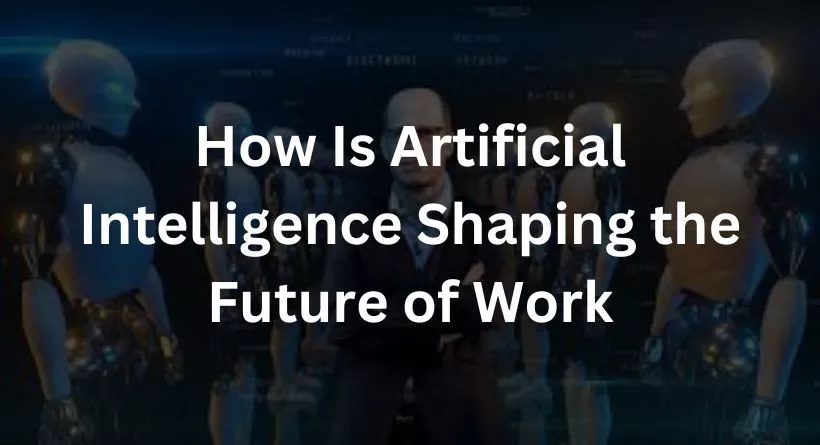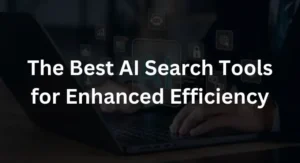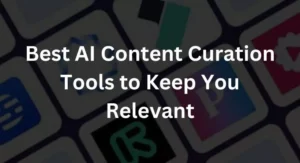
Artificial Intelligence (AI) has become a transformative force in various industries, and one of the areas where its impact is most evident is in the future of work. As technology continues to advance, AI is redefining how we approach our jobs, the skills we need, and the way businesses operate. This article delves into the profound influence of AI on the workforce and how it is reshaping the future of work.
The Rise of Artificial Intelligence

The 21st century has witnessed an unprecedented growth in AI technologies. Machine learning, natural language processing, and computer vision are just a few of the AI subfields that have gained prominence. As AI systems become more sophisticated, their applications extend far beyond simple tasks, infiltrating industries such as healthcare, finance, manufacturing, and more. With this technological progression, it’s clear that the future of work will be closely tied to AI.
You may also like reading: How Artificial Intelligence is Changing the Future of Business
AI’s Impact on the Job Market
Automation of Routine Tasks
One of the most significant ways AI is reshaping work is through task automation. Repetitive and mundane tasks are increasingly being delegated to AI-driven systems. This allows employees to focus on more strategic, creative, and value-added activities. However, it also raises concerns about job displacement in certain industries.
The Evolution of Job Roles
AI is not just eliminating jobs; it’s also evolving them. New roles are emerging, such as AI trainers, explain ability experts, and AI ethicists. As AI takes over routine tasks, human workers are required to adapt and take on responsibilities that require emotional intelligence, creativity, and critical thinking.
Enhancing Efficiency with AI
Process Optimization
AI is adept at optimizing processes. It can streamline operations, reduce errors, and improve efficiency across various industries. This results in cost savings and enhanced productivity, which are essential for companies looking to remain competitive in a rapidly changing world.
Improved Decision-Making
AI’s ability to process vast amounts of data in real time enables better decision-making. Businesses can harness AI to gain insights and make data-driven choices, which is invaluable in a highly competitive landscape.
AI in Healthcare and Education

Personalized Learning
In the field of education, AI is personalizing learning experiences. Adaptive learning platforms use artificial intelligence (AI) algorithms to tailor educational content to individual students, improving engagement and understanding. Similarly, AI is playing a critical role in healthcare by personalizing treatment plans and enhancing patient care.
Medical Diagnosis and Treatment
AI-driven diagnostic tools have become an integral part of healthcare. AI can analyze medical images, identify anomalies, and even predict diseases with remarkable accuracy. This not only improves patient outcomes but also reduces the burden on healthcare professionals.
The Need for New Skills
Upskilling and Reskilling
As AI redefines job roles, there is an urgent need for upskilling and reskilling. Workers must acquire new skills to stay relevant in the job market. Lifelong learning is becoming the norm, and educational institutions and businesses must provide opportunities for individuals to acquire AI-related competencies.
Preparing for the Future
Preparing for an AI-centric future involves a combination of adaptability and curiosity. Embracing change and being open to learning new skills will be essential for workers who wish to thrive in a world shaped by AI.
Ethical Considerations
Bias in AI Algorithms
AI is not without its ethical challenges. Bias in AI algorithms can perpetuate existing inequalities, particularly in hiring and decision-making processes. It is crucial to address these issues to ensure that AI contributes positively to the future of work.
Privacy Concerns
AI’s ability to collect and analyze data also raises concerns about privacy. Striking a balance between the benefits of AI and the need to protect individual privacy will be an ongoing challenge.
Conclusion
Artificial Intelligence is undeniably shaping the future of work. It is automating routine tasks, creating new job roles, optimizing processes, and enhancing decision-making. AI is revolutionizing healthcare and education while also demanding new skill sets from the workforce. However, ethical considerations, such as bias and privacy, must be carefully addressed to ensure that AI’s impact on work is positive and inclusive.
FAQs
How is AI affecting traditional job roles?
AI is automating routine tasks and creating new job roles that require emotional intelligence and critical thinking.
Why is upskilling important in the AI era?
Upskilling is essential to adapt to the changing job market and stay relevant in an AI-driven world.
What is the role of AI in healthcare?
AI is used for medical diagnosis, personalized treatment, and the analysis of medical images.
What are the ethical challenges associated with AI?
Bias in AI algorithms and privacy concerns are two major ethical challenges posed by AI.
How can businesses prepare for the future of work with AI?
Businesses can prepare for the future by embracing AI, providing opportunities for upskilling, and addressing ethical concerns to ensure an inclusive future of work.





